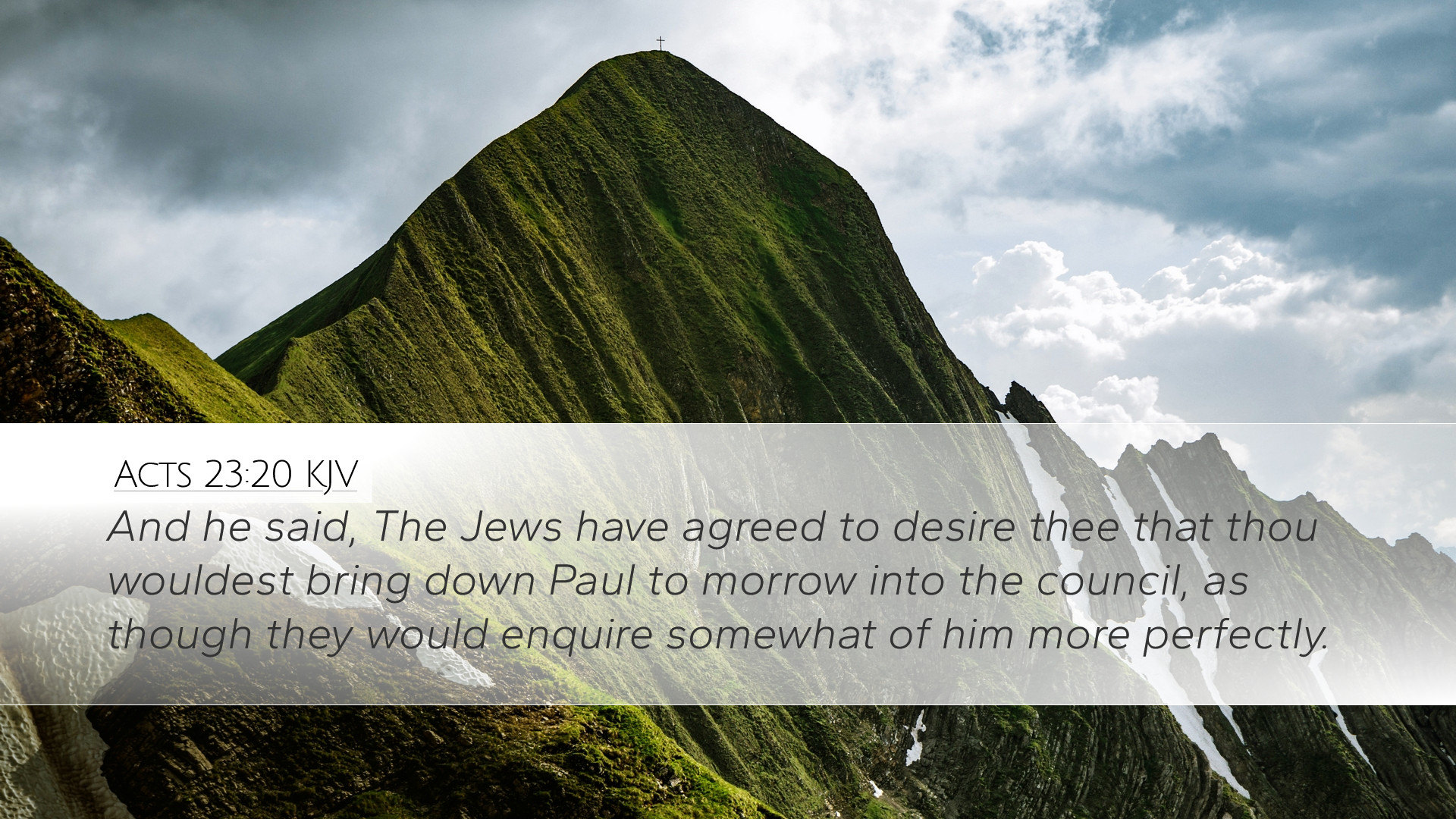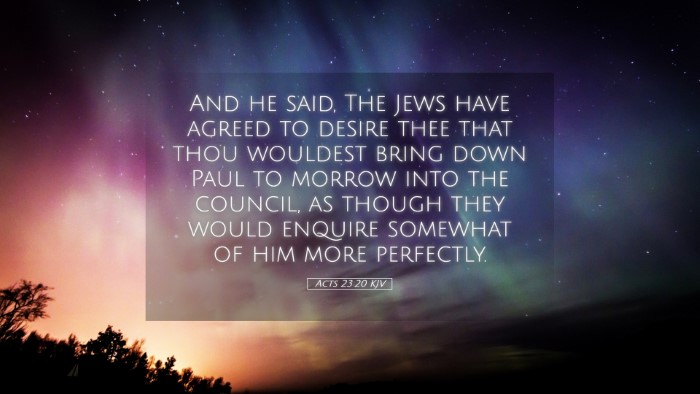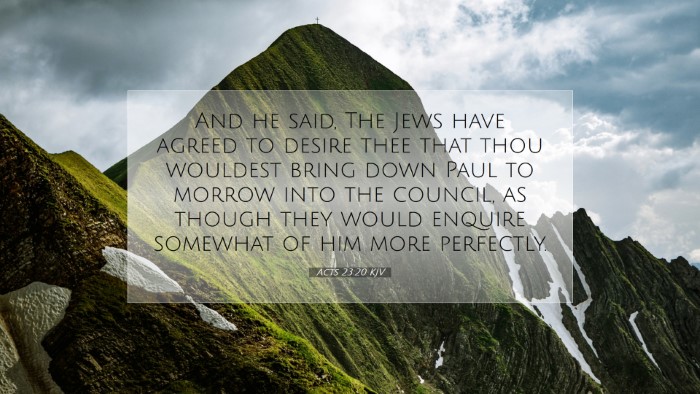Commentary on Acts 23:20
Acts 23:20 records a significant moment in the life of the Apostle Paul as he navigates through the complexities of political intrigue, religious tension, and personal peril. The verse states:
"And when he had called unto him two of the centurions, saying, Prepare thou two hundred soldiers to go to Caesarea, and horsemen threescore and ten, and spearmen two hundred, at the third hour of the night:"
Contextual Background
This chapter occurs at a pivotal point in the book of Acts, where Paul finds himself in Jerusalem, facing opposition from the Jewish authorities. Following his arrest, the circumstances surrounding his trial reveal the broader tensions between Jewish customs and emerging Christian beliefs.
Insights from Public Domain Commentaries
Matthew Henry's Commentary
Matthew Henry emphasizes the divine providence at work in Paul's situation. He points out that the conspiracy against Paul’s life demonstrates the malice of his enemies but also the protection of God over His servant. Henry highlights how God can use even the opposition of men to fulfill His purposes. Paul, being informed of the plot to kill him, takes action with the help of a Roman centurion. This not only illustrates Paul’s faith but also shows that God can use secular authorities to protect His servants.
Albert Barnes' Notes on the Bible
Albert Barnes provides additional details regarding the military preparations mentioned in the verse. He notes that the number of soldiers and horsemen indicates the seriousness of the threat against Paul and the Roman authorities' commitment to his safety. The complexity of the situation is underscored by the need for such a military response. Barnes also reflects on the significance of the “third hour of the night,” interpreting it as a strategic time for travel, aiming to avoid detection and possible ambush. This preparation illustrates both the urgency and importance of Paul’s mission as he is transported to a safer environment.
Adam Clarke's Commentary
Adam Clarke delves into the details of the personal connections that Paul had, particularly in light of his Roman citizenship. He underscores how Paul's rights as a Roman citizen afforded him protection in the midst of tumult. Clarke also comments on the numeration of soldiers provided, explaining that the heavy military presence showcases not only Paul’s importance but also the Roman authority’s sensitivity to public unrest. Paul’s situation exemplifies the tensions of the early church amidst the existing Roman governance, illustrating the interplay of faith, politics, and protection.
Theological Implications
This passage in Acts 23 invites readers to consider the broader themes of God's sovereignty and the role of secular powers in the protection of divine missions. Here are some implications for scholars and theologians:
- Divine Sovereignty: The events paint a compelling picture of how God orchestrates circumstances for the fulfillment of His will, using both enemies and allies in Paul's life.
- The Role of Authority: The use of Roman soldiers highlights the complex relationship between the church and state, and how God can use earthly authorities to protect His servants.
- Faith Under Pressure: Paul’s action to secure his safety amidst imminent danger teaches leaders about being wise and prudent while trusting God’s plan.
Practical Applications for Ministers and Congregations
This commentary can guide pastors and leaders in their ministries today:
- Trust in God's Protection: Encourage congregants to seek God's guidance and protection in crises, recognizing that God governs all events.
- Engagement with Authority: Draw lessons on how Christians can engage with civil authorities for the protection of their rights and mission.
- Importance of Community: Affirm the value of trust and support within the church community, much like how the centurions supported Paul.
Conclusion
Acts 23:20 is more than a historical account; it serves as an affirmation of God’s continuing work through His servants amidst adversity. The insights from public domain commentaries enrich our understanding of this passage, revealing the interplay between faith, courage, and political reality. As church leaders and theologians examine these themes, they are reminded of God’s sovereign hand in guiding His people through challenges, reinforcing the truth that God is ever-protective of those who serve His kingdom.


